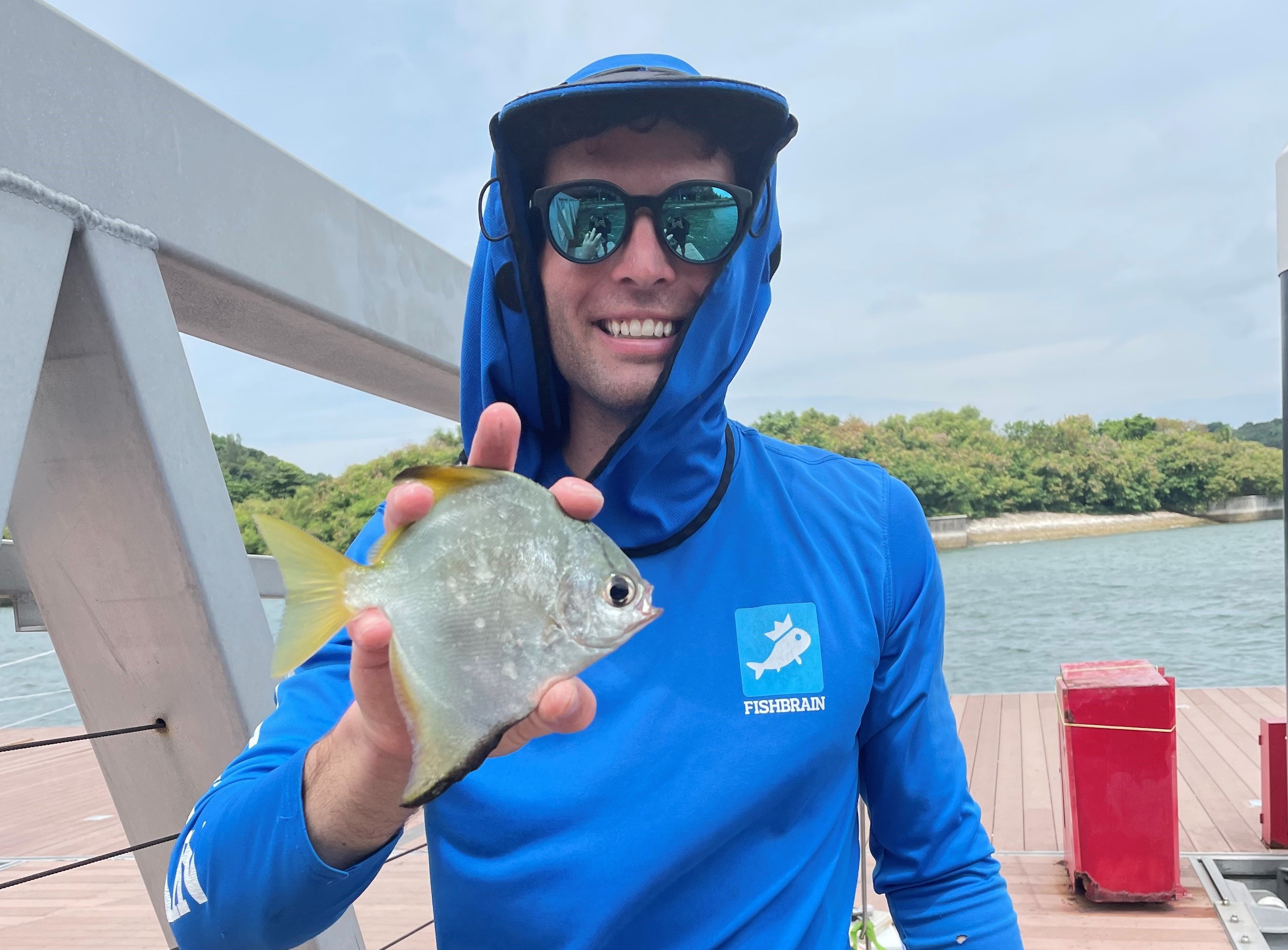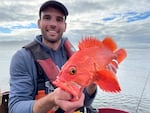
Luke Ovgard pictured with his 1,000th species, the silver moony, Monodactylus argenteus, caught while fishing in Singapore, July 12, 2022.
Courtesy Luke Ovgard
Luke Ovgard has been fishing for as long as he can remember — literally. He told “Think Out Loud” that one of his very earliest memories was going on a long fishing trip with his dad when he was three.
“I did eventually hook a fish, but I had no idea what to do. So instead of reeling it in, I just sort of backed up to the bank a little bit higher with each step until I pulled the fish onto the bank. And then that would become our dinner later that night.”
Ovgard is now a writer and a high school teacher in Southern Oregon but he’s never stopped fishing. But it wasn’t until about 5 years ago that he started carefully keeping track of the number of fish species he caught. That put him in a niche community known as “species hunters,” anglers who catch and catalog their fish before releasing them.
Ovgard caught his 1,000th fish species in mid-July, becoming only the sixth in the world to make that mark. He calls his endeavor his “SpeciesQuest,” which he writes columns and blogs about. His Instagram is all fish, all the time.

Luke Ovgard holds a Yelloweyed Rockfish he caught and released in summer 2021, one of the more than 1,000 species he's caught.
Courtesy Luke Ovgard
Aside from the thrill of the hunt, he feels this kind of fishing has a much deeper purpose.
”Every single species matters whether or not it has commercial value,” Ovgard says. “Whether or not it’s small or ugly, it deserves to be protected and to have its story told.”
Ovgard says that because he can focus on lesser-known species, he’s able to share data with biologists and researchers — data like migration and feeding patterns, invasive species monitoring, and even new populations of fish.
“I’m not alone in this, either,” Ovgard says. “It’s a fairly common occurrence in this subset of the fishing community.”
Ovgard says for him, “That’s one of the beautiful things about this type of fishing.”
The number of fish species he’s caught now numbers 1,101 — and he has no intention of putting away his fishing gear anytime soon.
